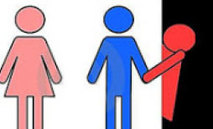
The ECHR Unanimously Confirms the Non-Existence of a Right to Gay Marriage
Chapin and Charpentier v. France
On June 9, 2016, the European Court of Human Rights delivered its decision on the case of Chapin and Charpentier v. France (n°40183/07). It questioned the French courts' decision to annul the “marriage of Bègles” contracted in 2004 between two men, in violation of French law.
By this decision, the European Court of Human Rights unanimously recalled that the European Convention on Human Rights does not include the right to marriage for homosexual couples, neither under the right to respect for private and family life (art. 8) nor the right to marry and to found a family (art. 12).
More precisely, this new decision confirms a series of judgements and particularly recalls that:
- The question of same-sex marriage is “subject to the national laws of the Contracting States” (§ 36, making reference to the Schalk and Kopf v. Austria judgement (n°30141/04);
- Article 12 confirmed the traditional concept of marriage, which is the union between a man and a woman and "does not impose an obligation on the governments of the Contracting States to grant same-sex couples access to marriage" (§ 36, making reference to Gas and Dubois v. France, n°25951/07, § 66);
- Article 12 “cannot be interpreted as imposing such an obligation on the governments of the Contracting States to grant same-sex couples access to marriage”. This recall of the recent judgements of Hämäläinen v. Finlande [GC] (n°37359/09), and Oliari and others v. Italy (n°18766/11 et 36030/11) has a very strong impact since it recognises the theoretical limits of the interpretation of the right to marry (§ 39);
- In regard to the right to respect for private life (guaranteed by Article 8) and the principle of non-discrimination (Article 14), “States are still free (...) to restrict access to marriage to different-sex couples", (making reference to Schalk and Kopf ,§ 108 and Gas and Dubois, § 66)
- States “enjoy a certain margin of appreciation as regards the exact status conferred by alternative means of recognition” of same-sex relationships, and its differences concerning the rights and obligations conferred by marriage (§ 58).
The ECLJ welcomes this decision, which it considers consistent with the correct interpretation of the European Convention on Human Rights. The ECLJ notes, however, that this decision does not totally rule out the possibility of a future development in the Court position in favour of a right to same-sex marriage as part of a right “to the recognition” of stable relationships. It also recognises that such an interpretation cannot be based on the wording of the Convention.
The question of same-sex marriage pushes the Court to the limits of its ability to interpret the Convention. These limits are marked by the very wording of this treaty and by the explicit will of the majority of its Member States. Although it is still appropriate to apply the Convention to the changes in society, on the contrary, it is inappropriate to pretend changing the very content of the Convention.
For further reading, see particularly: G. Puppinck, Same Sex Unions at the ECHR, 20 April 2015.












